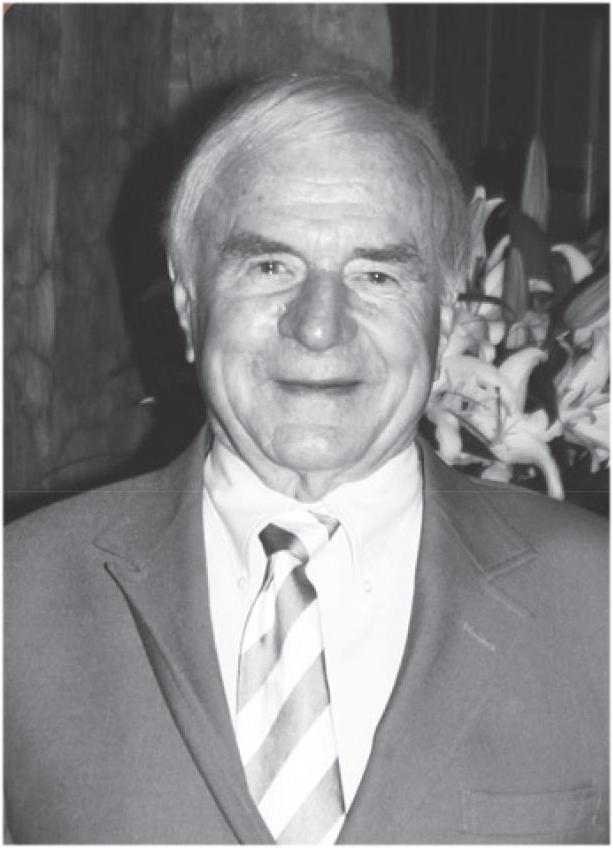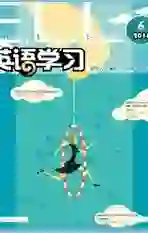父亲叫我学小提琴
2016-05-14ByClarenceDay
By Clarence Day

Father Had Me Taught Violin
Father had been away, reorganizing some old up-state(纽约州北部)railroad. He returned in an executive mood(处于做事情的状态)and proceeded to shake up our home. In spite of my failure as a singer, he was still bound to have us taught music(叫我们学音乐). We boys were summoned(召集)before him and informed that we must at once learn to play on something. We might not appreciate it now, he said, but we should later on. “You, Clarence, will learn the violin. George, you the piano. Julian—well, Julian is too young yet. But you older boys must have lessons.”
I was appalled(吓坏了)at this order. At the age of ten it seemed a disaster to lose any more of my freedom. The days were already too short for our games after school; and now here was a chunk(一大块时间)to come out of playtime three days every week. A chunk every day, we found afterward, because we had to practice.
George sat at the piano in the parlor(客厅), and faithfully learned to pound out [重击(乐器)演奏] his exercises. He had all the luck. He was not an inspired player, but at least he had some ear for music. He also had the advantage of playing on a good robust(结实的)instrument, which he didnt have to be careful not to drop, and was in no danger of breaking. Furthermore, he did not have to tune(调音)it. A piano had some good points.
But I had to go through a blacker and more gruesome(可怕的)experience. It was bad enough to have to come in from the street and the sunlight and go down into our dark little basement where I took my lessons. But that was only the opening chill(害怕,担心)of the struggle that followed.
The whole thing was uncanny(神秘的,离奇的). The violin itself was a queer(奇怪的), fragile(易碎的), cigar-boxy thing, that had to be handled most gingerly(轻手轻脚地). Nothing sturdy(壮实的)about it. Why, a fellow was liable to crack it putting it into its case. And then my teacher, he was queer too. He had a queer pickled(腌制过的,咸菜的)smell.
I dare say he wasnt queer at all really, but he seemed so to me, because he was different from the people I generally met. He was probably worth a dozen of some of them, but I didnt know it. He was one of the violinists in the Philharmonic(交响乐团), and an excellent player; a grave(严肃的), middle-aged little man—who was obliged to(被迫)give lessons.
He wore a black, wrinkled frock coat(长礼服), and a discolored gold watch-chain. He had small, black-rimmed(黑边的)glasses; not tortoise-shell(玳瑁), but thin rims of metal. His violin was dark, rich, and polished, and would do anything for him.
Mine was balky(倔强的)and awkward, brand new(全新的), and of a light, common color.
The violin is intended for persons with a passion for music. I wasnt that kind of person. I liked to hear a band play a tune that we could march up and down to, but try as I would, I could seldom whistle such a tune afterward. My teacher didnt know this. He greeted me as a possible genius.
He taught me how to hold the contraption(精巧的设备,这里指小提琴)tucked under my chin. I learned how to move my fingers here and there on its handle or stem(柄). I learned how to draw the bow(琴弓)across the strings, and thus produce sounds…
Does a mother recall the first cry of her baby, I wonder? I still remember the strange cry at birth of that new violin.
My teacher, Herr M., looked as though he had suddenly taken a large glass of vinegar(醋). He sucked in his breath. His lips were drawn back from his teeth, and his eyes tightly shut. Of course, he hadnt expected my notes(音符)to be sweet at the start; but still, there was something unearthly(神秘的,怪异的)about that first cry. He snatched(一下夺过)the violin from me, examined it, readjusted its pegs(琴栓), and comforted it gently, by drawing his own bow across it. It was only a new and not especially fine violin, but the sounds it made for him were more natural—they were classifiable(可分类的,可分辨的)sounds. They were not richly musical, but at least they had been heard before on this earth. He handed the instrument back to me with careful directions. I tucked it under my chin again and grasped the end tight. I held my bow exactly as ordered. I looked up at him, waiting.
“Now,” he said, nervously.
I slowly raised the bow, drew it downward…
This time there were two dreadful cries in our little front basement. One came from my new violin and one from the heart of Herr M.
Herr M. presently came to, and smiled bravely at me, and said if I wanted to rest a moment he would permit it. He seemed to think I might wish to lie down awhile and recover. I didnt feel any need of lying down. All I wanted was to get through the lesson. But Herr M. was shaken. He was by no means ready to let me proceed. He looked around desperately, saw the music book, and said he would now show me that. We sat down side by side on the window-seat, with the book in his lap, while he pointed out the notes to me with his finger, and told me their names.
After a bit, when he felt better, he took up his own violin, and instructed me to watch him and note how he handled the strings. And then at last, he nerved(鼓起勇气)himself to let me take my violin up again. “Softly, my child, softly,” he begged me, and stood facing the wall…
We got through the afternoon somehow, but it was a ghastly(可怕的)experience. Part of the time he was maddened by the mistakes I kept making, and part of the time he was plain wretched(可怜的,悲惨的). He covered his eyes. He seemed ill. He looked often at his watch, even shook it as it has stopped; but he stayed the full hour.
That was Wednesday. What struggles he had with himself before Friday, when my second lesson was due, I can only dimly(模糊地)imagine, and of course I never even gave them a thought at the time. He came back to recommence(重新开始)teaching me, but he had changed—he had hardened. Instead of being cross(恼怒的), he was stern(严厉的); and instead of sad, bitter(尖刻的). He wasnt unkind to me, but we were no longer companions. He talked to himself, under his breath; and sometimes he took bits of paper, and did little sums on them, gloomily(沮丧地), and then tore them up.
During my third lesson I saw the tears come to his eyes. He went up to Father and said he was sorry but he honestly felt sure Id never be able to play.
Father didnt like this at all. He said he felt sure I would. He dismissed(拒绝,不接受)Herr M. briefly—the poor man came stumbling(跌跌绊绊)back down in two minutes. In that short space of time he had gallantly(勇敢地)gone upstairs in a glow(脸上泛红), resolved(决心)upon sacrificing his earnings for the sake of telling the truth. He returned with his earnings still running, but with the look of a lost soul about him, as though he felt that his nerves and his sanity(健全的理智)were doomed to(注定要)destruction. He was low in his mind, and he talked to himself more than ever. Sometimes he spoke harshly of America, sometimes of fate.
But he no longer struggled. He accepted this thing as his destiny. He regarded me as an unfortunate something, outside the human species, whom he must simply try to labor with as well as he could. It was a grotesque(怪诞的), indeed a hellish(糟透的)experience, but he felt he must bear it.
He wasnt the only one—he was at least not alone in his sufferings. Mother, though expecting the worst, had tried to be hopeful about it, but at the end of a week or two I heard her and Margaret talking it over. I was slaughtering a scale(宰杀音阶,这里形容作者拉音阶的声音像杀猪一样难听)in the front basement, when Mother came down and stood outside the door in the kitchen hall and whispered, “Oh, Margaret!”
I watched them. Margaret was baking a cake. She screwed up her face(面部扭曲), raised her arms, and brought them down with hands clenched(攥紧).
“I dont know what we shall do, Margaret.”
“The poor little feller(小伙子),” Margaret whispered. “He cant make the thing go(玩不转,拉不好).”
This made me indignant(气愤的). They were making me look like a lubber(笨拙的傻子). I wished to feel always that I could make anything go…
I now began to feel a determination to master this thing. History shows us many examples of the misplaced(错位的)determinations of men—they are one of the darkest aspects of human life, they spread so much needless pain: but I knew little history. And I viewed what little I did know romantically—I should have seen in such episodes(故事片断)their heroism, not their futility(徒劳). Any role that seemed heroic attracted me, no matter how senseless.
Not that I saw any chance for heroism in our front basement, of course. You had to have a battlefield or something. I saw only that I was appearing ridiculous. But that stung(使刺痛)my pride. I hadnt wanted to learn anything whatever about fiddles(小提琴)or music, but since I was in for it(骑虎难下), Id do it, and show them I could. A boy will often put in enormous amounts of his time trying to prove he isnt as ridiculous as he thinks people think him.
